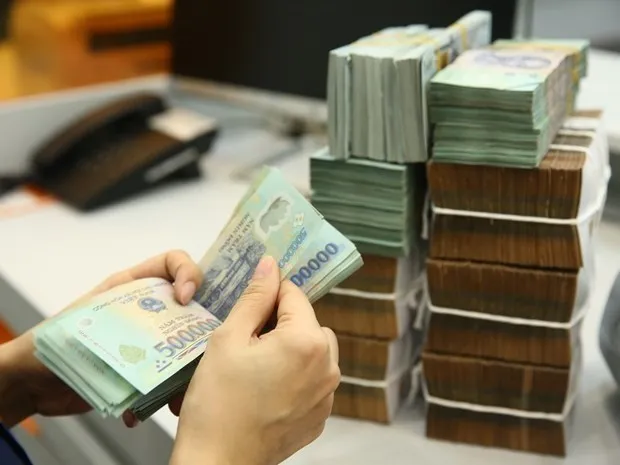
JOURNALIST: - Dr. Cấn Văn Lực, could you provide more details about the causes of the slow progress in the banking restructuring project and how to address weak credit institutions?
Dr. CẤN VĂN LỰC: - There are several key reasons contributing to the delayed bank restructuring project, as acknowledged by the State Bank of Vietnam. First, the banking sector involves complex procedures and approvals that require multiple stages and processes, which can be time-consuming. Second, determining the sources of funding for restructuring, particularly how to allocate resources to compensate struggling credit institutions, poses a significant challenge. This requires a delicate balance of resources when there are other competing programs that also need priority funding. Third, there has been a limited mobilization of resources to support credit institutions in need of restructuring.
In addition to these primary reasons, the current market conditions are unfavorable, which adds to the difficulties. Only when both domestic and global markets improve and become less volatile will the bank restructuring process become more favorable.
- Given the unfavorable market context, should we prioritize the restructuring plan or address the "zero dong" banks first?
- "Zero dong" banks are currently facing severe operational challenges, as the State Bank has also acknowledged. However, the adverse market conditions make it impossible to address this issue immediately.
Regarding bank restructuring, there are two potential options being considered for implementation. First, a stronger and more capable domestic bank could step in to provide support. Second, the sale of shares to private investors, including foreign investors, is another avenue being explored. The State Bank has made it clear that foreign investors may participate, as there is relatively open room for expansion. The decision on whether investors are interested will ultimately depend on their own evaluation and strategy.
- On the issue of capital sources for restructuring, you mentioned the possibility of foreign investors participating, but in reality, foreign investors have not shown much interest. Why do you think that is?
- In fact, foreign investors and international financial institutions have been active participants in the Vietnamese market for a considerable time. Statistics reveal that Vietnam currently has nine banks with foreign capital, two joint venture banks, and various organizations contributing capital to Vietnamese commercial banks. However, it is concerning that over the past decade, the market share of total assets held by foreign banks and joint ventures in Vietnam has remained at around 10%.
Presently, foreign banks have not fully utilized the 30% room for foreign ownership in domestic banks. Among the four banks with state capital, only three have foreign ownership ratios ranging from 16.7% to 25.5%. For joint-stock banks, while some have nearly reached the limit for foreign investors at around 27-28%, it is uncertain whether foreign investors will participate due to their diverse strategies and aversion to concentrating their investments.
There are multiple reasons why foreign investors might be hesitant. Firstly, foreign financial institutions are typically cautious in their operations within Vietnam, conducting thorough reviews and risk management. As a result, the bad debt ratio of foreign banks in Vietnam is quite low, ensuring a return on equity (ROE) of around 10% annually. They follow a cautious strategy, despite significant growth potential in the Vietnamese market.
Secondly, the lack of transparency, standards, and consistency in the Vietnamese financial market and banking sector has prompted several foreign banks to divest their capital. Moreover, some foreign banks wish to transform their presence in Vietnam into subsidiary banks, but they have encountered limitations, leading them to engage in alternative channels to become strategic and financial shareholders in Vietnamese banks.
Regarding the specially controlled banks and weak credit institutions, the State Bank of Vietnam has sought and obtained approval from competent authorities for the policy of compulsory transfer of four specially controlled banks. The State Bank has also directed banks to proceed with compulsory purchases and cooperate with consulting organizations to determine enterprise values, ensuring compliance with legal regulations. At this stage, valuation consulting firms have issued valuation certificates, and the State Bank has engaged the State Audit to audit the results.
The results of restructuring weak banks have not yielded the anticipated outcomes as of yet, mainly due to certain challenges. These include identifying and negotiating with qualified banks willing to accept transfers (considering their financial capacity, governance, and experience in credit institution structure). The process is protracted and complex, heavily reliant on the voluntary participation of banks and necessitates time to persuade shareholders, particularly large and strategic foreign shareholders, to consent to mandatory transfers.
- Thank you for your insights.
The Restructuring of The Bank Has Not Yielded Definite Outcomes
The process of bank restructuring in Vietnam has been slow and has not achieved its intended goals. The slow progress, which takes many years, has not yielded the desired results, and newly arising bad debt rates have negatively impacted the overall quality of the banking system. In a report sent to the National Assembly Standing Committee for review and submission to the National Assembly, the State Bank of Vietnam indicated that it is still actively implementing a project aimed at restructuring the credit institution system and addressing bad debts for the 2021-2025 period. The project primarily focuses on handling bad debts and restructuring and managing weak credit institutions.
As of now, most credit institutions have developed and submitted their restructuring plans associated with bad debt management to the State Bank.
It's worth noting that Resolution 25/2016/QH14 on the national 5-year financial plan for the 2016-2020 period outlined that state budget funds would not be used to restructure state-owned enterprises or handle bad debts of banks. Furthermore, the resolution even contemplated the possibility of allowing foreign investors to acquire 100% ownership of weak banks.
The challenges in restructuring the banking sector, particularly addressing bad debts and handling weak credit institutions, continue to pose issues for Vietnam's financial system. The authorities are working to address these concerns, but it remains a complex and ongoing process.




















